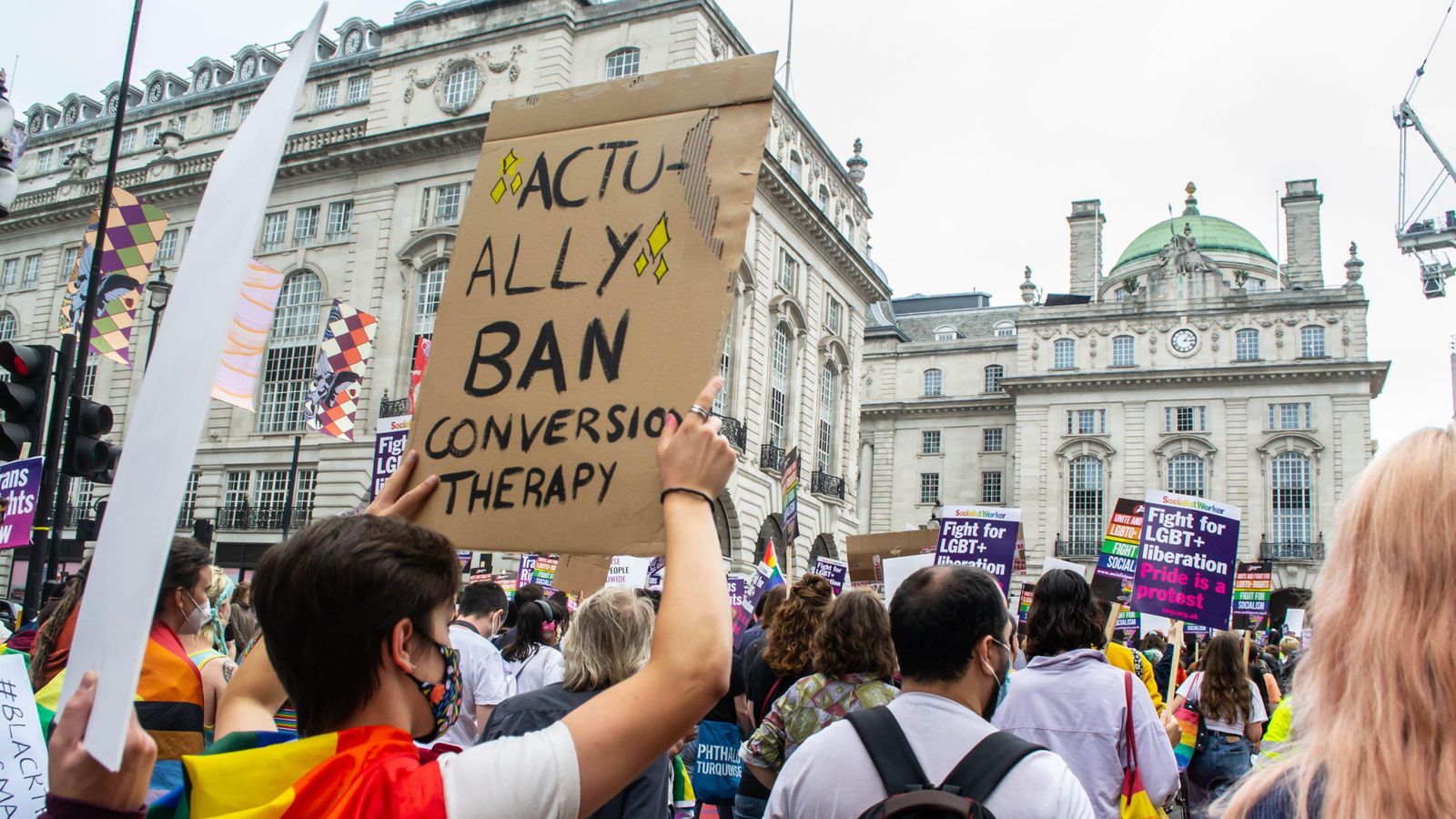The government is considering whether it can go ahead with a landmark global LGBT conference this summer after more than 100 groups pulled out over changes to plans to ban conversion therapy.
Organisations including Stonewall said they would no longer support the Safe To Be Me event due to take place on London following the decision to exclude transgender people from the ban.
More than 80 LGBT+ groups have pulled out of the event, which would coincide with the 50th anniversary of the capital’s first official Pride marches.
In a separate statement, issued on behalf of 23 HIV organisations, the Terrence Higgins Trust said it would also not be supporting the conference.
The government said it was “disappointing to see partners withdraw from an international conference focused on the fundamental human rights issues facing LGBT people around the world and which provides a global platform to create positive change”.
“The government is now considering how to proceed and will continue to work alongside global forums, including the ERC and EFPN, to convene international partners and drive forward action,” a spokesperson said.
The June-July event was billed as the UK’s first ever global LGBT conference when it was launched by senior ministers Liz Truss and Dominic Raab last year.
Government expected to sell Channel 4 as public ownership is ‘holding it back’
Helen MacNamara: Government’s former ethics chief apologises for ‘error of judgement’ after partygate fine
Rishi Sunak to launch an NFT issued by the Royal Mint to help make UK ‘global cryptoasset hub’
It promised to bring together officials, policy makers activists and experts “to protect and promote the rights of LGBT people around the world”.
But the plans have been now been thrown own into after the government last week changed plans for banning conversion therapy that had first been set out in 2018.
Please use Chrome browser for a more accessible video player
The practice attempts to change an individual’s sexual orientation or gender identity and is outlawed in several countries.
But the government now plans to ban only gay conversion therapy, not trans conversion therapy – saying that in the case of the latter only that it would carry out further work to consider the issue.
In a statement on Monday, it said this was to ensure that the law did “not interfere in the work of legitimate therapists providing appropriate support for people with gender dysphoria who may be considering taking life-changing medication”.
LGBTQ+ group Stonewall said: “Due to the prime minister’s broken promise on protecting trans people from the harms of conversion therapy, we regret that we are withdrawing Stonewall’s support for the UK Government’s Safe To Be Me conference.
“We will only be able to participate if the prime minister reverts to his promise for a trans-inclusive ban on conversion therapy.
“This is a decision we take with a heavy heart.
“That the prime minister would so casually walk away from four years of promises to the LGBTQ+ community is appalling, and we cannot in good conscience back Safe To Be Me at a time when our community’s trust in the UK government is shattered.”
The statement was shared by The LGBT+ Consortium, which has more than 500 members, and more than 80 groups have added their names to it.
Meanwhile, religious leaders including former archbishop of Canterbury Dr Rowan Williams have written to the PM to say there is “no justification for the ban on so-called ‘conversion therapy’ excluding trans people”.
Jamie Wallis, the Conservative MP who last week came out as trans, tweeted that he was “bitterly disappointed” at the government’s decision.
A government spokesperson said: “The UK has a proud history of LGBT rights and the Prime Minister has been very clear he is committed to bringing forward legislation to ban conversion therapy.
“He has made the point emphatically that people who want to make a transition in their lives should be treated with the maximum possible generosity and respect, but the complexity of issues requires separate work to further consider transgender conversation therapy.”






















